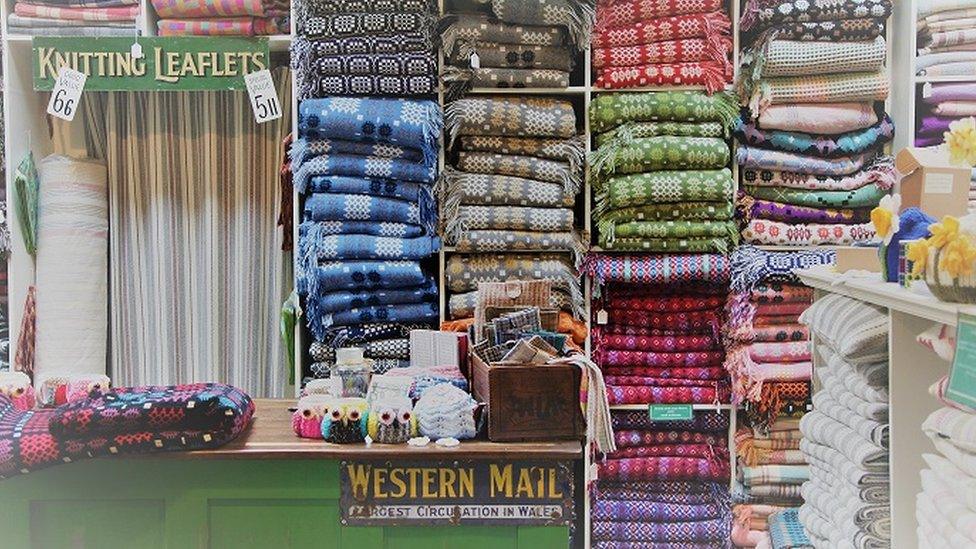Melin Tregwynt: Wool mill latest Welsh firm transferred to staff
- Published
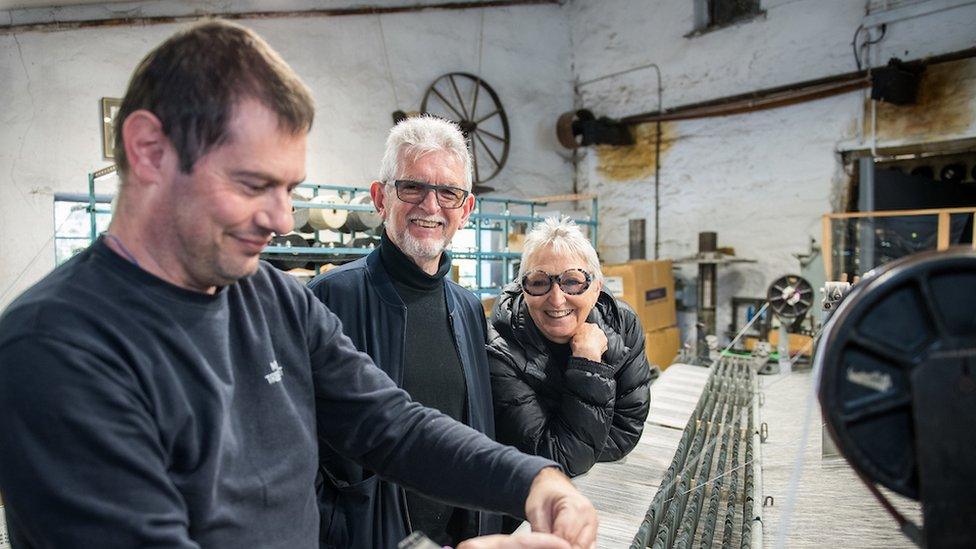
Eifion Griffiths and Amanda Griffiths says the workers were the right people to carry on the business
Wool blanket firm Melin Tregwynt is transferring the running of the business to its staff.
An employee-owned trust will manage the mill, which has been in the Griffiths family since 1912.
Owners Eifion and Amanda Griffiths said the workers were the right people to carry on the business.
The mill, in Castlemorris, Pembrokeshire, is the latest Welsh company to hand ownership from its founders to an employee-owned model.
"You can get caught in the businesses," Mr Griffiths said.
"Mum and Dad really worked in the businesses until they died, both of them."
Mrs Griffiths said the couple had always said they did not want to do that themselves.
The couple plan to reduce their time at the mill as ownership is transferred to the trust.
The staff will make the decisions, while the founders are paid a staggered amount as they step back from the business.
There is no cost or liability for individual workers, just the incentive to ensure the business thrives.
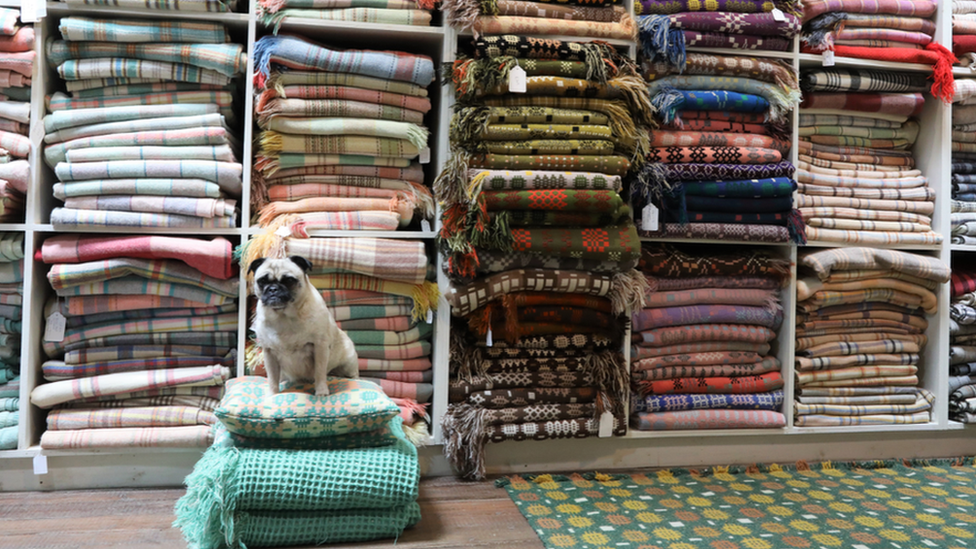
Jane Beck says there is currently "huge" demand for Welsh blankets which is "fast out stripping supply"
The move sidesteps selling to an outside firm that could change the business.
"It was about finding the right people to carry it on after you," Mr Griffiths said.
"A lot of businesses sell to another business, or somebody comes along and says 'I'd like to buy this'.
"But that would mean we'd have to trust those people with a business that is part of our life."
Mrs Griffiths said others' experience of selling to rich buyers had taught them to look for another plan.
"We had come across people who'd had creative companies and sold them," she said.
"They thought they were finding the right partner, but they had actually been disappointed quite quickly."
The couple plan to remain living nearby.
Mrs Griffiths added: "You ask yourself, how would you live with yourself if you had sold the business and they had asset-stripped it, if your staff had lost their jobs?"
Mr Griffiths agreed.
"We are not retiring somewhere warm," he said.
"We are staying about five miles away, so we want to be able to come here and feel proud."
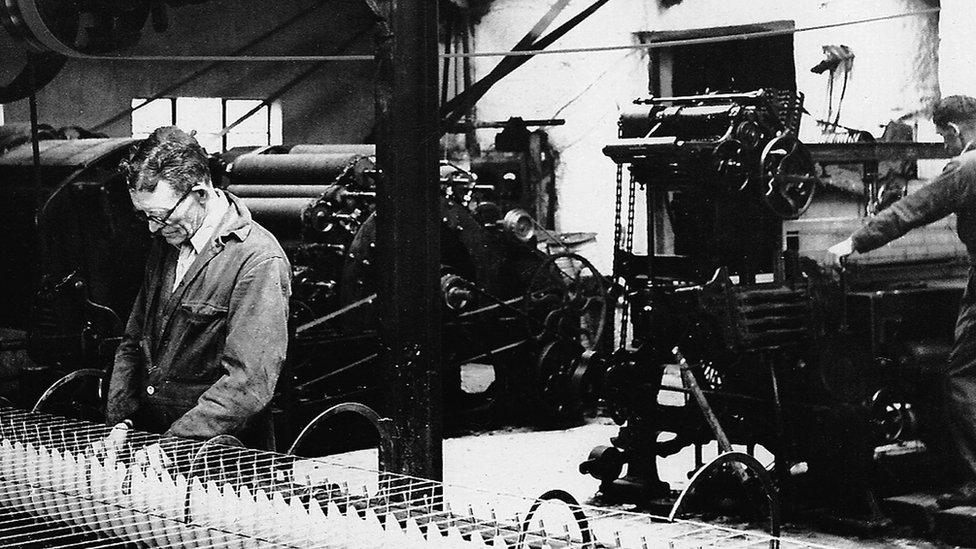
Eifion Griffiths' grandfather founded Melin Tregwynt when he bought the mill at Castlemorris near Haverfordwest in 1912
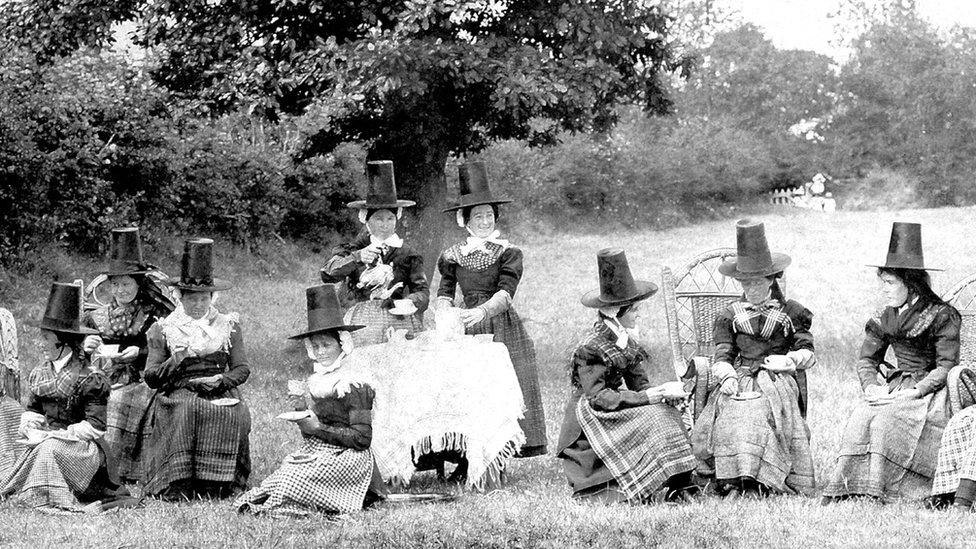
There's been a woollen mill at Castlemorris since the 17th century
Eifion Griffiths' grandfather, Henry Griffiths, founded Melin Tregwynt when he bought the mill at Castlemorris near Haverfordwest in 1912.
He paid about £750 for the 17th Century mill at auction in Fishguard.
"Even in my grandfather's time we had a sort of mail-order market," Mr Griffiths said.
He said his father, Howard Griffiths, helped to realise the mill's potential as a shop and tourist attraction.
Eifion Griffiths trained as an architect before returning to run the family firm in the 1970s.
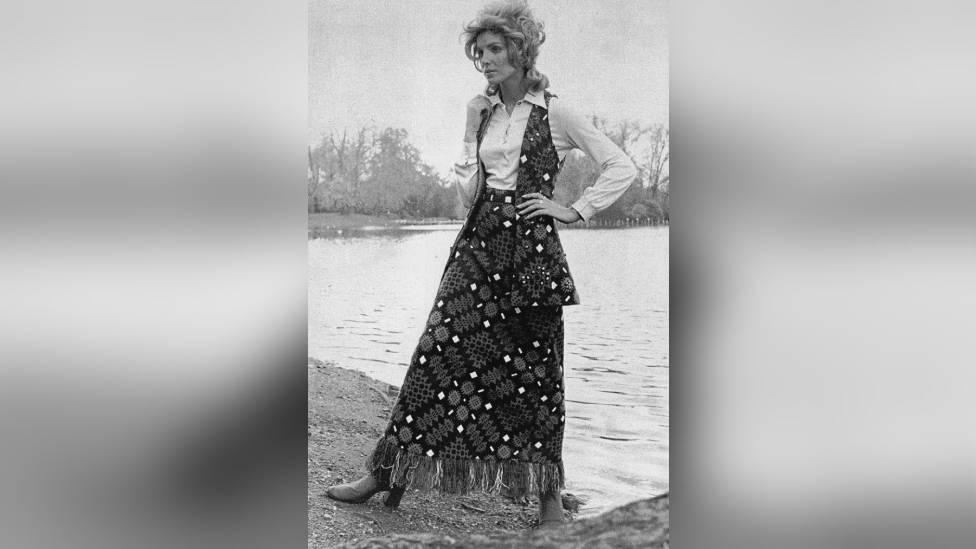
During World War Two wool for knitting was not rationed, so the mill's production turned to making knitting wool for local women
He and Amanda married in 1986 and have both overseen the expansion of the business into a sought-after Welsh designer and textile maker.
Its products are sold around the world.
Other Welsh firms have also transferred ownership from founders to staff.
Caernarfon-based TV production company Cwmni Da transferred the business to employees in 2019.
Tregroes Waffles, based in Llandysul, Ceredigion, is also adopting an employee-owned model.
Melin Tregwynt was supported by the Wales Co-operative Centre in transferring ownership to its workforce.
Its chief executive Derek Walker said it was natural to consider giving ownership to staff since those employees have helped build the business.
"It keeps jobs in the local community [and] it is good for the business because you see great improvements in productivity as a result of employee ownership," he said.
"We see it in sectors from tech to textiles, from restaurants to TV production."
Related topics
- Published19 February 2022

- Published31 March 2018

- Published25 September 2017
